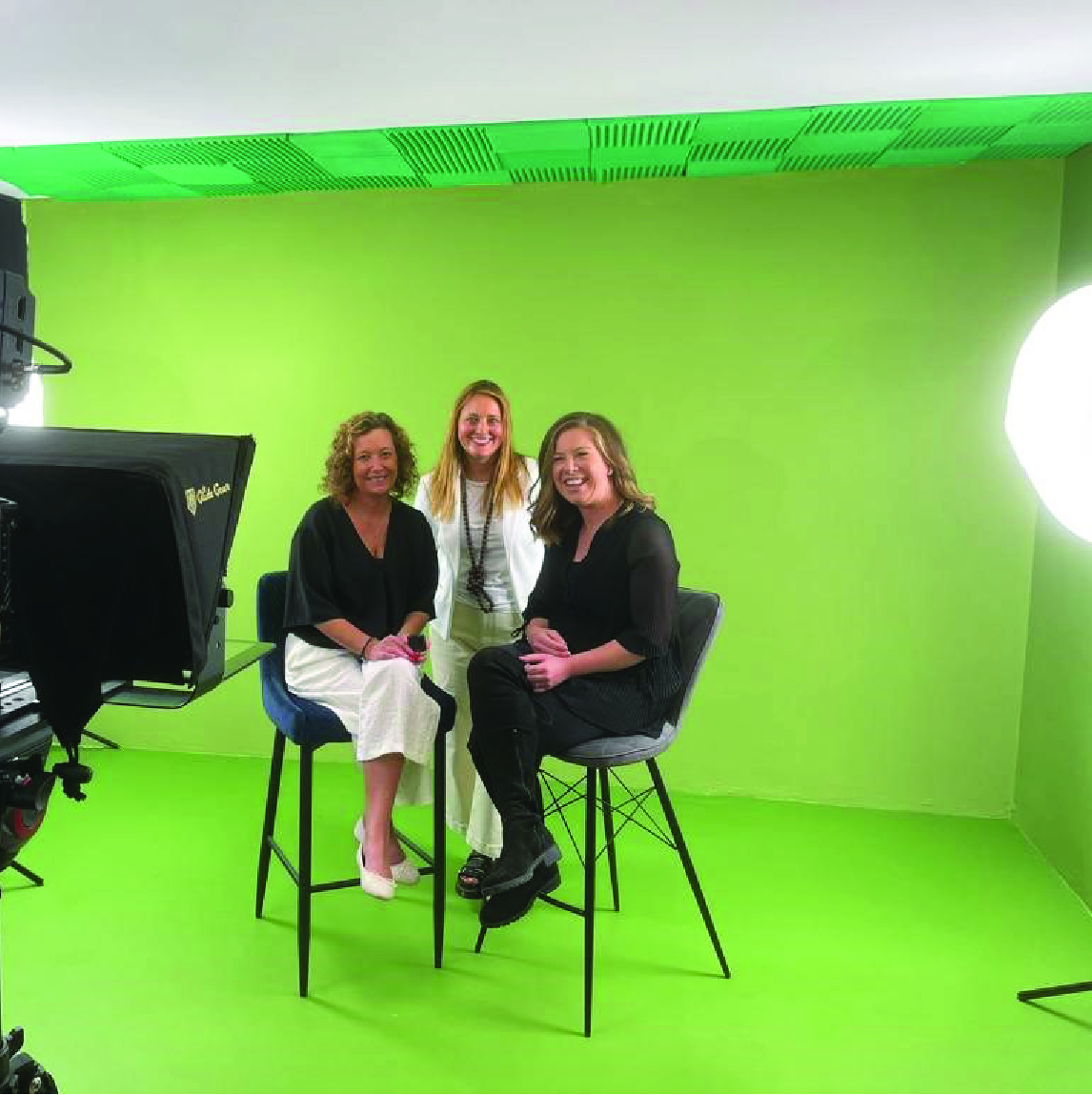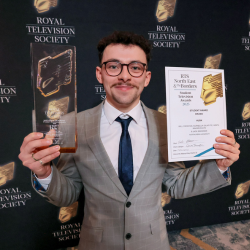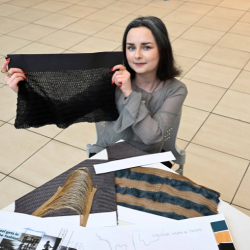-
Study
-
Quick Links
- Course Search
- Unlock Your Potential
- Still time to Apply
- Higher and Degree Apprenticeships
- Continuing Professional Development
- Still time to apply
-
Undergraduate
- Course Search
- Application Guides
- UCAS Exhibitions
- Foundation Years
- Fees and Funding
- School & College Outreach
- Information for Parents
-
Postgraduate
- Course Search
- Application Guide
- Postgraduate Research Degrees
- Flexible Learning
- Fees and Funding
- Change Direction
- Register your Interest
-
Student Life
- Students' Union
- The Hub - Student Blog
- Accommodation
- Northumbria Sport
- Support for Students
-
Experience Northumbria
- Open Days & Events
- Virtual Tours
- Campus Tours
- Life in Newcastle
-
-
International
International
Northumbria’s global footprint touches every continent across the world, through our global partnerships across 17 institutions in 10 countries, to our 277,000 strong alumni community and 150 recruitment partners – we prepare our students for the challenges of tomorrow. Discover more about how to join Northumbria’s global family or our partnerships.
View our Global Footprint-
Quick Links
- Course Search
- Undergraduate Study
- Postgraduate Study
- Information for Parents
- London Campus
- Northumbria Pathway
- Sign up for Information
-
International Students
- Information for Students
- International Events
- Application Guide
- Entry Requirements and Education Country Agents
- Global Offices
- English Requirements
- English Language Centre
- International student support
-
International Fees and Funding
- International Undergraduate Fees
- International Undergraduate Funding
- International Masters Fees
- International Masters Funding
- International Postgraduate Research Fees
- International Postgraduate Research Funding
-
International Partners
- Agent and Representative Network
- Global Partnerships
- Global Community
-
International Mobility
- Information for Northumbria Students
- Information for Incoming Exchange Students
-
-
Business
Business
The world is changing faster than ever before. The future is there to be won by organisations who find ways to turn today's possibilities into tomorrows competitive edge. In a connected world, collaboration can be the key to success.
More on our Business Services -
Research
Research
Northumbria is a research-rich, business-focused, professional university with a global reputation for academic quality. We conduct ground-breaking research that is responsive to the science & technology, health & well being, economic and social and arts & cultural needs for the communities
Discover more about our Research -
About Us
-
About Northumbria
- Our Strategy
- Our Staff
- Place and Partnerships
- Leadership & Governance
- Academic Departments
- University Services
- History of Northumbria
- Contact us
- Online Shop
-
-
Alumni
Alumni
Northumbria University is renowned for the calibre of its business-ready graduates. Our alumni network has over 246,000 graduates based in 178 countries worldwide in a range of sectors, our alumni are making a real impact on the world.
Our Alumni - Work For Us
What will I learn on this module?
This module will introduce you to linguistics as a science and to a variety of empirical research methods used by linguists. You will learn to record and analyse linguistic data, design experiments, and use basic descriptive and inferential statistics. You will also learn to locate and evaluate information, using printed and electronic media, and improve your IT, communication and team-working skills, which will directly contribute to your personal and professional development.
How will I learn on this module?
The module will be taught by a mixture of lectures, IT workshops, seminars and online tasks. Lectures will introduce the key theoretical concepts and analytical techniques. Workshops will provide opportunities for hands-on practice in applying these concepts and techniques using specialised software and databases (e.g., LLBA, Web of Science, SPSS). There is a strong emphasis on learning by doing. In the seminars, students will discuss several published studies which used the methods they learned about in the lectures and workshops and design and carry out, under the tutor’s guidance, a project involving a partial replication and/or extension of one of the studies they have read. This will be done by teams of 3-4 students, who will then present their findings orally in class. The module has a strong emphasis on the development of skills, in particular, oral and written communication, IT, referencing, and teamwork, and peer evaluation.
You will be expected to undertake both directed and independent learning. Directed learning will take the form of preparation for seminars where you will be expected to contribute to group work and full class discussion. Independent learning will take the form of further reading and investigation, the consolidation of seminar notes, and preparation for the assessment of the module.
All learning materials, tasks and readings will be posted on the eLP (e-learning portal) to facilitate full participation in the module. Additionally, you will receive formative feedback on your ideas and understandings throughout the module. You will also be required to submit a research proposal for formative assessment. The module’s final, summative assessment will also provide an opportunity for learning.
How will I be supported academically on this module?
The module aims to introduce you to Linguistics as a science. Thus, lectures, IT workshops, seminars and online tasks will develop your academic knowledge and skills, to help you attain the module learning outcomes. Your academic development will also be facilitated through engagement with the academic literature and by talking with your peers and the module tutor about my understanding of this literature (i.e. reading around the topic, and discussing and reflecting upon what you have read).
The module handbook provides details of lectures, seminars, reading lists and assessment criteria; lecture materials are made available on the eLP (see above). The module tutor will be available in lectures and seminars, as well as in ‘Feedback and consultation hours’ (i.e. ‘office hours’) and on email, to discuss any queries or concerns you have about how to excel academically on the module. Formative feedback will be on-going throughout seminar/workshop activities. Formative feedback will also be provided on your research proposal at the end of semester 1 and will act to inform completion of the module’s formative assessment, a 15-min group presentation of your research project, and 1500 word research report discussing the results of your research project.
In addition, you have a designated Guidance Tutor throughout the entire duration of your programme. The academic side of the Guidance Tutor’s role includes: monitoring your ongoing academic progress; helping you to develop self-reflection skills necessary for continuous academic development; directing you to further available services which can help them with their academic skills (e.g. Library’s Skills Plus). You are advised to see your Guidance Tutor at least twice each semester to review your academic progress..
What will I be expected to read on this module?
All modules at Northumbria include a range of reading materials that students are expected to engage with. Online reading lists (provided after enrolment) give you access to your reading material for your modules. The Library works in partnership with your module tutors to ensure you have access to the material that you need.
What will I be expected to achieve?
Knowledge & Understanding:
1. Demonstrate an understanding of basic research methods and techniques used in linguistics to test theoretical concepts.
2. Demonstrate an understanding of the relationship between data and theory
Intellectual / Professional skills & abilities:
3. show the ability to think critically and evaluate information.
4. demonstrate IT, teamworking, oral and writing skills Establish and justify your own position within complex debates and arguments.
Personal Values Attributes (Global / Cultural awareness, Ethics, Curiosity) (PVA):
5. Demonstrate intellectual openness to linguistics as a science and the methodologies and techniques used to investigate / challenge linguistic theory.
How will I be assessed?
Formative assessment
1. You will present your ideas during seminars and will receive formative feedback from the module tutor and peers on any perspectives you share. This will enable you to test and form your own understanding about linguistics as a science and methodologies employed in linguistic enquiry .
2. 500 word Research Proposal
This formative assessment will aim to ensure you organise your ideas and materials for your research project which will ultimately form the basis for your summative assessments, a 15 minute group presentation and a 1,500 word report. The research will be submitted and feedback provided via email, supported by a one-to-one meeting with the module tutor as necessary. The rationale for this is to enable you to outline your ideas and research methodology before undertaking your data collection.
Students will be invited to submit a research proposal to the seminar tutor for formative feedback.
Formative assessments address MLOs in ‘Knowledge and Understanding’, ‘Intellectual/Professional skills & abilities’, and ‘Personal Values Attributes’.
Summative (graded) Assessments
1. A 15 minute group presentation
2. 1,500-word academic essay
You will present the data from your research project in a 15 minute group presentation following conventions for academic presentations. This will provide 50% of your award. The feedback you receive from the presentation is to be used to inform your 1500 report. This will be written by you alone, but will be based on your presentation and will again follow academic convention for writing research essays. This will provide 50% of your final award. You will be expected to demonstrate clear engagement with the wider theoretical debate within which your research project is situated. The aim here is to ensure you get to grips with theoretical positions and concepts, while expressing your arguments in a format with which you should now be familiar.
The essay assessment will be part of the learning process, and addresses all five MLOS.
Feedback will be provided using the Programme template and comments on the script.
Pre-requisite(s)
N/A
Co-requisite(s)
N/A
Module abstract
Please find details of this module in the other sections provided.
Course info
UCAS Code Q310
Credits 20
Level of Study Undergraduate
Mode of Study 3 years Full Time or 4 years with a placement (sandwich)/study abroad
Department Humanities
Location City Campus, Northumbria University
City Newcastle
Start September 2025 or September 2026
All information is accurate at the time of sharing.
Full time Courses are primarily delivered via on-campus face to face learning but could include elements of online learning. Most courses run as planned and as promoted on our website and via our marketing materials, but if there are any substantial changes (as determined by the Competition and Markets Authority) to a course or there is the potential that course may be withdrawn, we will notify all affected applicants as soon as possible with advice and guidance regarding their options. It is also important to be aware that optional modules listed on course pages may be subject to change depending on uptake numbers each year.
Contact time is subject to increase or decrease in line with possible restrictions imposed by the government or the University in the interest of maintaining the health and safety and wellbeing of students, staff, and visitors if this is deemed necessary in future.
Useful Links
Find out about our distinctive approach at
www.northumbria.ac.uk/exp
Admissions Terms and Conditions
northumbria.ac.uk/terms
Fees and Funding
northumbria.ac.uk/fees
Admissions Policy
northumbria.ac.uk/adpolicy
Admissions Complaints Policy
northumbria.ac.uk/complaints













